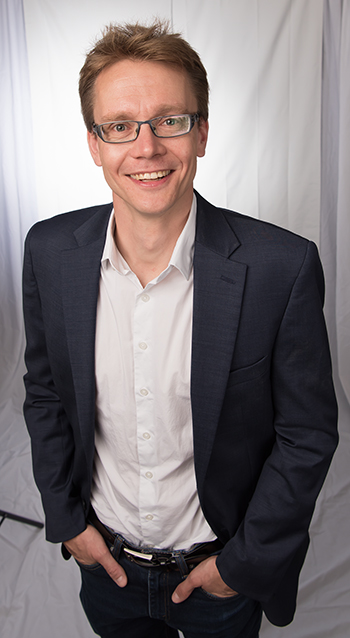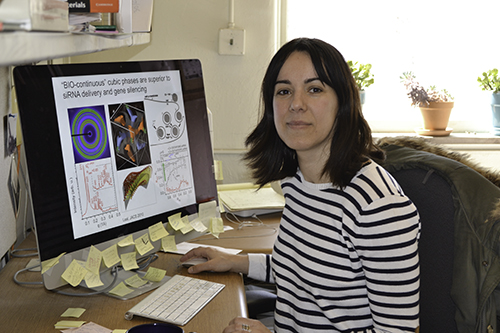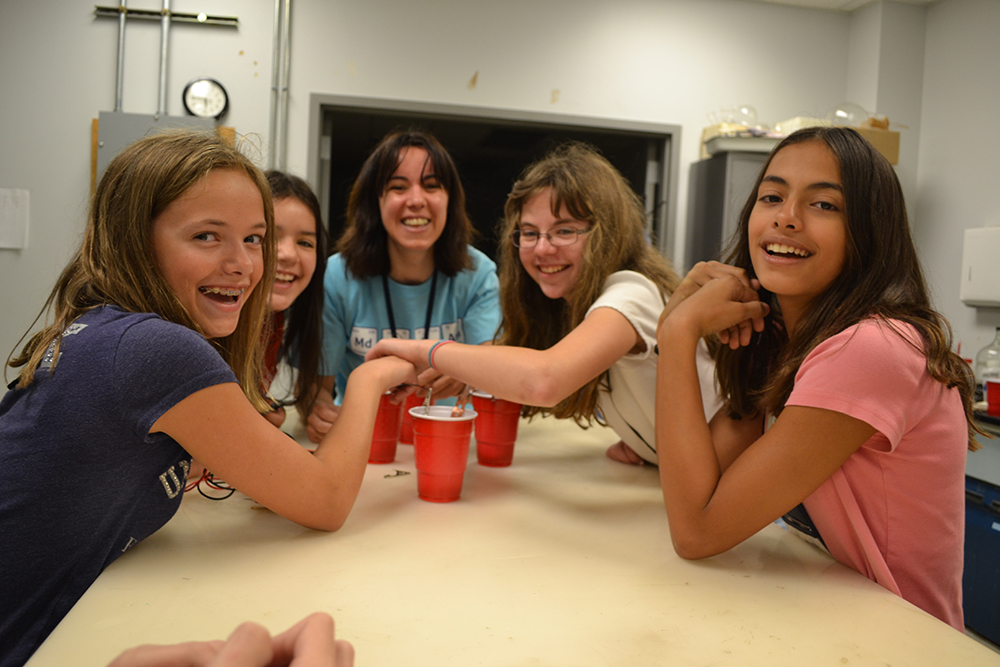MatSE Afterschool Academy to Introduce Students to Materials Science and Beyond

Associate Professors Leal and Schleife (courtesy of Schleife).
June 14, 2021
Materials Science and Engineering (MatSE) Associate Professors André Schleife and Cecília Leal are currently working on developing the MatSE Afterschool Academy, which will help students learn more about MatSE as well as the college application process for students interested in the University of Illinois. Selected as a GIANT project, and funded by the IDEA Institute, Schleife and Leal will work towards providing students with the resources needed in future endeavors in MatSE.
The IDEA Institute was developed within the University of Illinois to address inclusion, diversity, equity, and access and its implementation in education, not only for college students but for K-12 students as well. The GIANT project is one of the key features of the IDEA Institute, with the aim to implement initiatives that aim to fulfil the mission goals. One such project is the MatSE Afterschool Academy, which will help in introducing MatSE to a diverse community of individuals from neighboring Illinois’ high schools.
When asked about the role the MatSE Afterschool Academy will play in increasing diversity within MatSE Professor Schleife remarked that “[the Academy will] get the word out about material science to increase both our recruitment numbers in general but specifically from people with diverse backgrounds” with Professor Leal corroborating the statement with, “this is an issue that has always been on our minds and a lot of the things that we do in the department take that into account.” This is largely due to the realization that the University of Illinois’ diversity is “very much on par with the national average” which is at a low percentage. Efforts have been made towards addressing this concern, however, Leal and Schleife realized that more was needed to be done.

Associate Professor André Schleife (Credit to André Schleife).
This goal also led to the development of the Diversity Committee for the Department of MatSE as well as the introduction of the Afterschool Academy. As Leal explains, through the Diversity Committee, they witnessed that with “the American Physics Society, they I believe, mentioned there that after school activities can be very helpful because it can put people in touch with topics that they don't have experience with otherwise. And so I think in that context we started thinking about this stuff” within the Diversity Committee and beyond.
The Afterschool Academy has another purpose as well: for students to learn about Materials Science and to receive mentorship in the college application process. Materials Science and Engineering has always had to fight an upward battle towards recruitment due to confusion of the major. Schielfe describes, “It is a recurrent thing that there's always a little bit of confusion of what material science is to more traditional engineering disciplines like civil, mechanical, even chemical engineering.” This can be due to the fact that MatSE is unique in the indisciplinariness of the major. MatSE students are expected to learn not only chemistry and physics, but depending on focus areas, specific aspects of biology, nanotechnology, aerospace engineering, and more! At first glance, it can seem daunting and overwhelming for students to comprehend and decide.
In order to limit this confusion from occurring, the MatSE Afterschool Academy will provide workshops and lectures in order for students to receive the mentorship needed to learn the application process as well as additional background knowledge regarding materials science and engineering. With plans of introducing the program in the upcoming fall, the goal is to host three sessions of roughly an hour and half through the semester, however, it will be far from boring. Schielfe and Leal describe their plan for the first two sessions as a form of introduction, and that, “[in the past] we did little demonstrations where we showed people what is a superconductor or what is the polymer, or you know, what happens if you have certain shape memory alloys, or electronic media.”

Associate Professor Leal.
The final session however, will provide the mentorship students will need, especially leading to the college application process. Providing this mentorship to students will help them establish a point of contact with the university in a system that both professors described as “less structured and less formal.” If this mentorship is implemented, students would be able to receive monthly check-ins and an opportunity to be kept “in touch with both material science and specifically with the department.”
As a whole, the implementation of the MatSE AfterSchool Academy will provide an opportunity for students to not only learn about the college application process, but to also introduce an interdisciplinary opportunity to combine multiple aspects of science together. As Scheifle says, “we want to tell them [students] about material science being exciting and interesting and a subject that they should partake in if they want to solve important problems.”
Story and photos by Garima Sharma, Undergraduate Intern, I-STEM Education Initiative.
More: Underserved Minorities, MatSE, 2021

Associate Professor Leal and her work in GLAM-Mid (Girls Learning About Materials).













.jpg)
















